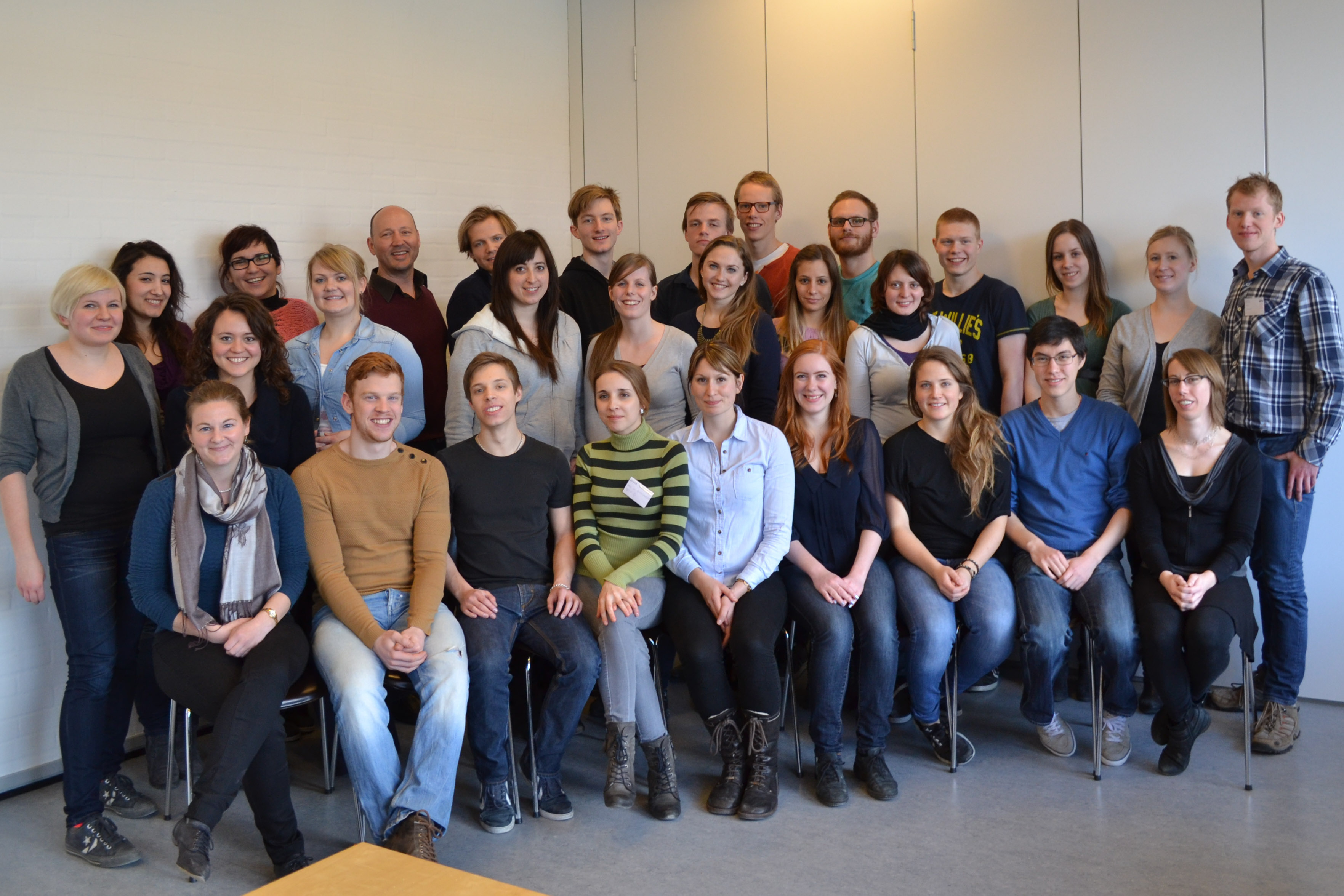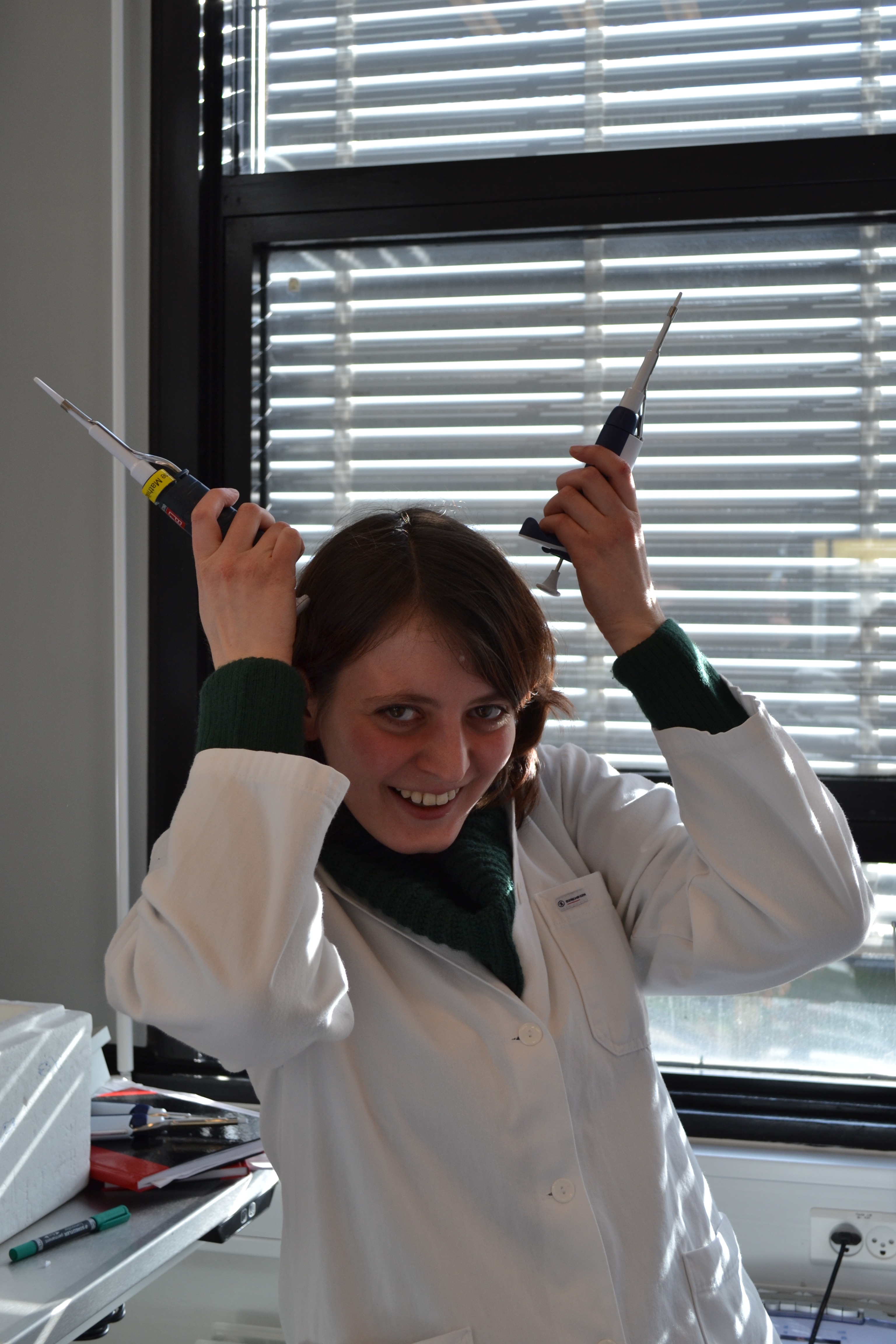Team:DTU-Denmark/Biobrick Workshop
From 2013.igem.org
| Line 2: | Line 2: | ||
<div class="overviewPage"> | <div class="overviewPage"> | ||
<div class="overviewBox"> | <div class="overviewBox"> | ||
| - | |||
| - | |||
==The idea== | ==The idea== | ||
Revision as of 13:03, 4 October 2013
BioBrick Workshop
The idea








|
We planned and hosted a three-day BioBrick workshop to introduce ourselves and the other iGEM teams from Denmark (SDU, KU) to the lab skills necessary to complete our projects. The workshop consisted of a mix of lectures, lab work and social events.
Lectures were on the BioBrick standards, BioBricks registry, project and time management, biosafety considerations, and the methods used over the lab experiments of the workshop, such as: USER cloning, PCR reactions and purification of plasmids, etc.
Purpose
The purpose of this workshop was to serve as an assembly tutorial to cover lab techniques independent of organism and project. We combined 5 parts using USER cloning in E. coli, and validated that the transformation was successful.
And of course, also to have fun!!
Agenda
Preparation (Done at DTU, by DTU team earlier in the week).
Prepare plates (4 per team).
Prepare colonies to use for validating that the transformation has worked.
Friday March 8th
13:00 -- Welcome, Introductions (Chris Workman).
13:30 -- Lecture: Introduction to working with Biobricks (Thomas Trolle).
Discussion of the Biobrick standard.
Overview of the lab process.
14:30 -- Lecture: What is the biobrick registry, and how to find parts (Damian Plichta).
Work through an example of finding parts to reach a particular goal.
15:00 -- Lecture: Introduction to the weekend project and USER cloning (Mathilde Lund).
What is USER cloning?
USER cloning with Biobricks.
16:30 -- Lecture: PHUSER (Hans Jasper Genee).
17:00 -- Tour of the lab.
Introduction to the equipment and techniques that will be over the weekend.
18:00 -- Social dinner in CBS kitchen.
Saturday March 9th
9:00 -- Introduction to labwork (Mathilde Lund).
Safety considerations when working in the lab.
How to run PCR.
10:30 -- Begin work on the project.
- Prepare PCR reaction mix (2 PCR reaction pr team) SOP1.
- Prepare USER cloning reaction mix SOP 3 + handout note (1 positive and 1 negative reaction per team).
Step 1 and 2 can both be stored several hours at 4°C.
12:00 -- Lunch
13:30 -- Lecture: Advice on project management and time management (Julie Rank).
14:00 -- Continue work on project in the lab (Transform cells and plate, incubate overnight).
- Prepare 1 analytical gel for each team + 2 purification gels SOP2 2.
- While waiting for the gel, prepare samples for analytical gel + purification electrophorese SOP2.
- Prepare transformation of USER cloning SOP3.
- While waiting for the transformation: Load analytical gel + purification gel electrophorese SOP2.
- Heatshock of transformation and plating of transformation SOP3.
- Analyse analytical gel by UV SOP2.
- Cut DNA from purification gel; freeze at -18°C for next day or purify right away SOP2.
20:00 -- Social Dinner at India Palace (buffet), Address: 13 H.C. Andersens Boulevard, 1553 Copenhagen V.
Sunday March 10th
9:00 -- Continue work on project in the lab (Using pre-prepared cultures, digest and run on a gel).
- Purify plasmids SOP4.
- Prepare restriction enzyme mix for purified plasmids SOP4.
- Analyse transformation plate and count number of colonies of transformation plates from Saturday. Pick 3 colonies from positive plate for further cultivation and purification SOP4.
12:00 -- Lunch
13:00 -- Continue Lab work.
- Purify DNA from cutout of gel from Saturday SOP2.
13:30 -- Lecture: How to get gold in iGEM (Chris Workman).
Discuss some of the frequently overlooked aspects of iGEM such as human practices and characterization of Biobricks that are necessary to achieve a gold medal.
14:30 -- Finish lab work.
- Prepare restriction enzyme reaction samples for gel electrophoresis SOP2.
- Load on gel SOP2.
16:00 -- Wrap up, Thanks (Chris Workman).
 "
"








